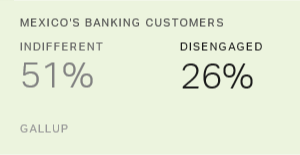It's an unfortunate reality that as technology advances, so do new ways to abuse it. According to the August Experian/Gallup Personal Credit Index poll*, nearly one in five Americans (18%) have experienced identity theft, saying they've had either their Social Security number, bank account number, or credit card number stolen. Not surprisingly, many Americans say they are concerned about identity theft -- but few have done anything to prevent it.
The public's lack of effort to combat identity theft could be lethal for the U.S. economy. If consumers leave themselves unprotected as the number of people victimized by identity theft grows, the current epidemic could reach critical mass and threaten the march toward a "cashless society."
Consumers Worry About Identity Theft
Two in three Americans say they have seen or heard about retail stores, banks, or other big databases from which individuals' financial information has been stolen. Twenty-seven percent say they have heard a great deal and another 41% have heard a moderate amount.
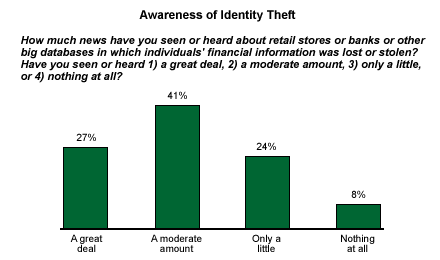
Among Americans who have not personally experienced an incidence of identity theft, 35% say they think it is somewhat or very likely that they will have their personal financial information stolen.
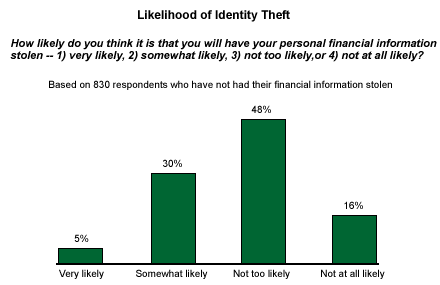
When asked how much they worry about specific places from which their financial information could be stolen, 6 in 10 U.S. consumers say they are very (32%) or somewhat (30%) concerned that their personal financial information could be stolen online. Slightly more than half, 55%, say they are very or somewhat concerned that they could have their identity stolen from their mail, 53% worry it could happen when making a purchase in a retail store, and 47% worry their financial information could be stolen when they are at a restaurant.
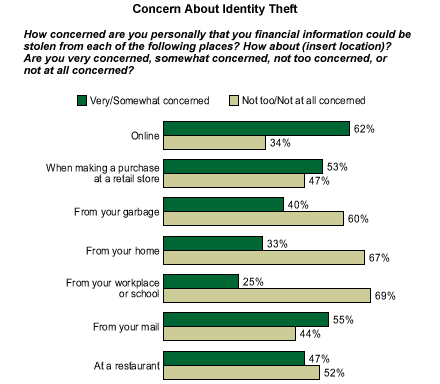
Prevention
The Experian/Gallup survey asked consumers if they have taken various measures to prevent identity theft. Just 19% say they have purchased their credit report in the past six months. Only 6% have purchased identity theft protection or credit score monitoring, while 4% have purchased identity theft insurance, and 3% have bought credit repair services.
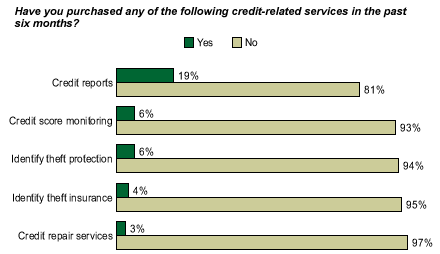
Reaching Critical Mass
Identity theft has clearly registered with many Americans as something they should be concerned about as they conduct their financial affairs. While most Americans don't seem to be doing much to deal with this situation, it is hard to imagine that the current identity theft epidemic can continue much longer before consumers begin to translate their concerns into action.
The danger is that before consumers and policy-makers finally take action, the current epidemic will grow to such an extent that consumers will begin to avoid transactions with a high risk of identity theft. Online transactions would be the first casualty of such a change in consumer behavior. Other everyday debit card and credit card transactions could soon follow. If the identity theft epidemic continues to gain momentum, we may end up reverting to a more cash-dependent society, with all the transaction costs and reduced productivity that entails.
*Results for the survey are based on telephone interviews with 1,014 adults, aged 18 and older, conducted July 14-20, 2005. For results based on this number of interviews, once can say with 95% confidence that the margin of sampling error is ±3 percentage points.

